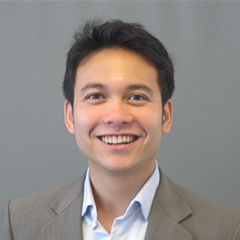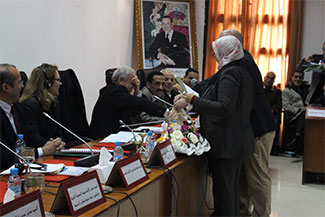Paolo Abarcar is an applied microeconomist whose work spans international development, labor, and education research. He has extensive experience in conducting randomized and other quasi-experimental evaluations and with analyzing large and previously unused administrative datasets. He is an expert on understanding international migration and development.
At Mathematica, Abarcar serves as an evaluator for multiple projects for the Millennium Challenge Corporation. In Morocco, he collaborated with the government on the design and implementation of a randomized control trial to study the impact of educational interventions delivered at secondary schools, with the goal of improving the quality of education and labor market outcomes of students. In Zambia, he oversees a mixed-method evaluation of a water and sanitation project that seeks to expand access to, and improve the quality of, water and sanitation services and drainage and solid waste management in the capital city. In Liberia, he leads the quantitative analysis of an energy project which seeks to measure the project’s impacts on end-user, grid-level, and utility-level outcomes. The evaluation uses data from administrative records, satellite-based nighttime lights data, and survey data from communities, households, and enterprises. Among other things, Abarcar serves as a reviewer for the What Works Clearinghouse evaluating the rigor of research that assesses the effectiveness of various educational interventions for the U.S. Department of Education.
Paolo’s other research focuses on investigating issues related to international migration and its effects on migrants and origin countries. He was Co-Principal Investigator for a randomized control trial to study the effects of offering financial education and financial services to migrant households in Philippines. His most recent work uses administrative data on the universe of migrant departures and school enrollments from the Philippines to show how international migration might lead to human capital accumulation or “brain gain.”
A native Filipino, Paolo finished his Ph.D. in Economics and Public Policy at the University of Michigan, Ann Arbor in 2016. His work has appeared in peer-reviewed publications, including the Journal of Economic Behavior & Organization and Economic Development and Cultural Change. Before graduate school, he worked at the Center for Global Development in Washington D.C. and focused on international migration research and foreign aid related issues.


